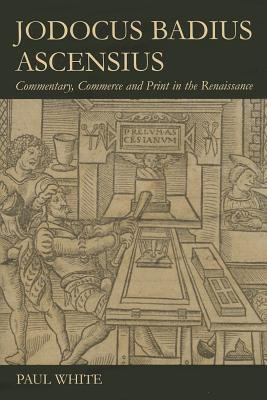
- We will send in 10–14 business days.
- Author: Paul White
- Publisher: British Academy
- ISBN-10: 0197265545
- ISBN-13: 9780197265543
- Format: 16.3 x 24.2 x 3.1 cm, kieti viršeliai
- Language: English
- SAVE -10% with code: EXTRA
Reviews
Description
Jodocus Badius Ascensius (1462-1535) was a scholar and printer who played a central role in the flourishing of humanism and print culture in the French Renaissance. In a career spanning four decades, he was involved with the print publication of something approaching one thousand editions. He was known for the "familiar" commentaries he wrote and published as introductions to the major authors of Latin (and, less frequently, Greek) antiquity, as well as on texts by medieval and contemporary authors. His commentaries and prefaces document the early stages of French humanism, and his texts played a major role in forming the minds of future generations.
This book provides an account of Badius's contributions to pedagogy, scholarship, printing and humanist culture. Its main focus is on Latin language commentaries on classical texts. It examines Badius's multiple roles in the light of changing conceptions of textual culture during the Renaissance. It also explores the wider context of the communities with which Badius cultivated relationships: scholars and printers, figures from religious orders, the university and officialdom. It considers the readerships for which Badius produced texts in France, England, Scotland, the Low Countries, and beyond. It explores the ways in which humanists understood the circulation of knowledge in terms of economy and commerce, and their conceptualisations of commentary as a site of cultural mediation.EXTRA 10 % discount with code: EXTRA
The promotion ends in 22d.15:07:19
The discount code is valid when purchasing from 10 €. Discounts do not stack.
- Author: Paul White
- Publisher: British Academy
- ISBN-10: 0197265545
- ISBN-13: 9780197265543
- Format: 16.3 x 24.2 x 3.1 cm, kieti viršeliai
- Language: English English
Jodocus Badius Ascensius (1462-1535) was a scholar and printer who played a central role in the flourishing of humanism and print culture in the French Renaissance. In a career spanning four decades, he was involved with the print publication of something approaching one thousand editions. He was known for the "familiar" commentaries he wrote and published as introductions to the major authors of Latin (and, less frequently, Greek) antiquity, as well as on texts by medieval and contemporary authors. His commentaries and prefaces document the early stages of French humanism, and his texts played a major role in forming the minds of future generations.
This book provides an account of Badius's contributions to pedagogy, scholarship, printing and humanist culture. Its main focus is on Latin language commentaries on classical texts. It examines Badius's multiple roles in the light of changing conceptions of textual culture during the Renaissance. It also explores the wider context of the communities with which Badius cultivated relationships: scholars and printers, figures from religious orders, the university and officialdom. It considers the readerships for which Badius produced texts in France, England, Scotland, the Low Countries, and beyond. It explores the ways in which humanists understood the circulation of knowledge in terms of economy and commerce, and their conceptualisations of commentary as a site of cultural mediation.

Reviews